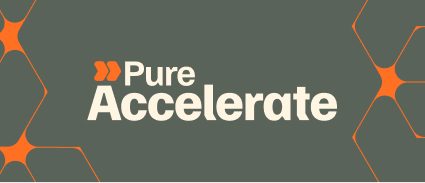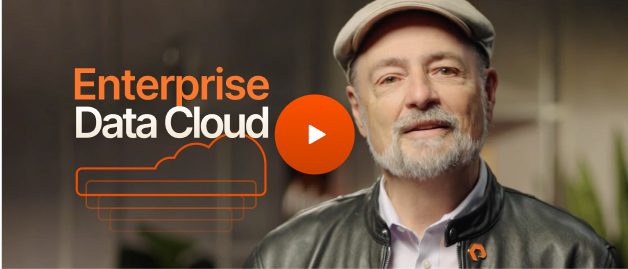Dismiss
Innovation
A platform built for AI
Unified, automated, and ready to turn data into intelligence.
Dismiss
June 16-18, Las Vegas
Pure//Accelerate® 2026
Discover how to unlock the true value of your data.
Dismiss
NVIDIA GTC San Jose 2026
Experience the Everpure difference at GTC
March 16-19 | Booth #935
San Jose McEnery Convention Center
What Is Healthcare ERP?

Driving Efficiency with Healthcare ERP
Few industries have experienced as much pressure in recent years as the healthcare industry. In addition to the challenges of a global pandemic, healthcare has faced mounting costs, as well as a rising need to protect patient data. While the goal of reducing costs requires healthcare organizations to work more efficiently, many organizations look at siloed data systems as a way to protect that data - and siloed systems are anything but efficient. However, there is a solution: healthcare enterprise resource planning (ERP).
ERP is used in every industry today. It’s typically a suite of software or software-as-a-service that ties together and centralizes data in all of a business’s systems, from accounting to procurement to project management to supply chain operations. ERP enables the smooth flow of data across all of these connected systems. It can eliminate data duplication and help users organize and use that data to make decisions across the enterprise.
In healthcare, a centralized ERP system breaks down data silos, which helps improve the accessibility and quality of patient care, streamline operations, and decrease overall costs. There’s no doubt that the extensive improvements ERP has provided to other industries can be extended to the healthcare industry.
How does healthcare ERP work?
Healthcare information systems are complex and interrelated and, in the past, were often created from a patchwork of specialized subsystems that didn’t always speak to each other well. This piecemeal approach increased complexity, lowering an organization's ability to care for patients and driving up costs.
A good ERP solution brings all the disparate pieces of a complex healthcare organization together under a single umbrella. Each component is designed to integrate with all of the others, providing caregivers easy, unfettered access to all data across the organization. The all-in-one system allows data to be shared across patient and clinical systems as well as back-office administrative, staffing, and financial systems, promoting better cost tracking and resource management.
What is the purpose of using healthcare ERP?
The twin goals of a healthcare ERP solution are better access to relevant data across the organization and improved efficiency. ERP helps streamline caregiver access to all aspects of a patient's data, from imaging to immunizations. Patients also benefit by receiving more access to and ownership of their own data, which is often centralized in a patient portal. As a result, these systems can enable organizations and patients to work together more effectively to foster a higher standard of care.
Healthcare ERP solutions promote efficiency by providing large-scale oversight into all of the administrative and clinical functions of a healthcare system. Administrators can use the data to track costs, set limits, and make better informed decisions. The artificial intelligence and centralized reporting often found in ERP systems can be used to achieve valuable insights, identifying problem areas that would be invisible without healthcare ERP.
Why do we need ERP in healthcare?
Enterprise resource planning was initially developed in industries that relied heavily on logistics and the supply chain. Adopting an ERP approach enabled businesses to achieve the general benefits described in the previous section. Healthcare may deal primarily with individual human health, but how it does so requires an inherently industrial approach. Hospitals and physician networks procure medical supplies, then distribute them to operating rooms, exam rooms, and individual patients by using a supply chain. Scheduling patient care requires a logistics-based approach with provider availability, procedure planning, and equipment reservations as critical components.
ERP for healthcare is a natural evolution of this systematic approach. Despite healthcare’s unique attributes, it still relies on cost management and data insights down to the individual unit, regardless of whether that unit is a piece of surgical equipment, an imaging report, or the patients themselves. Healthcare ERP solutions offer a way to improve how these processes function.
What are some examples of healthcare ERP systems?
Numerous providers have developed ERP solutions, most of which aren’t healthcare-specific. These include SAP S/4HANA, Oracle Fusion Cloud ERP, IFS Cloud, and Microsoft Dynamic 365. Other ERP systems are targeted toward healthcare specifically, and those are beneficial because they will “include the connectivity and cross-analytics that hospitals and other healthcare systems need for efficient data processing,” according to a recent article.
Which system a hospital or physician network chooses will depend on a number of factors, including integration with any existing systems, hospital or network size, and whether mobile access is important. According to the previously mentioned article, the most important features should include:
- Elimination of repetitive data entry and coding errors
- Management of growing and diversifying supply chain processes
- Robust employee and patient management
- Predictive analytics and AI for patient quality assurance
One critical aspect of healthcare ERP is scaling access by using a cloud-based infrastructure. Choosing a cloud provider that cuts data storage footprints is vital to improving access speed and reducing costs. An effective healthcare ERP solution requires low latency, the capacity to support complex data analytics, and fast boot times for EHR systems. Choosing the right provider is the critical first step toward incorporating these benefits.
Why use ERP for healthcare?
Healthcare organizations use ERP systems to deliver better outcomes for caregivers and patients alike. Some of the most important benefits of healthcare ERP solutions include:
Improving patient care: With quick, easy access to all the right information, caregivers can make smarter decisions about treatment.
Lowering operational costs: With insight into the inner workings of hospital operations, administrators can see where dollars are being spent and work to resolve issues that are not cost-effective.
Streamlining healthcare processes: Armed with up-to-date information, administrators and caregivers can identify and eradicate diagnosis and treatment bottlenecks.
Increasing financial forecast accuracy: By knowing where money is going and how effectively it is being spent, administrators can create more accurate forecasts for future spending and financial needs.
Today's challenging healthcare environment is filled with competing priorities, changing legislative requirements, and mounting costs. Healthcare networks must adopt the most streamlined processes available to provide the best care at the lowest price. Healthcare ERP solutions can give organizations the tools they need to do just that.

Test Drive FlashBlade
No hardware, no setup, no cost—no problem. Experience managing an Everpure FlashBlade, the industry's most advanced solution delivering native scale-out file and object storage.
We Also Recommend...
Browse key resources and events

SAVE THE DATE
Pure//Accelerate® 2026
June 16-18, 2026 | Resorts World Las Vegas
Mark your calendars. Registration opens in February.
PURE360 DEMOS
Explore, learn, and experience Everpure.
Access on-demand videos and demos to see what Everpure can do.

VIDEO
Watch: The value of an Enterprise Data Cloud
Charlie Giancarlo on why managing data—not storage—is the future. Discover how a unified approach transforms enterprise IT operations.
RESOURCE
Legacy storage can’t power the future
Modern workloads demand AI-ready speed, security, and scale. Is your stack ready?
Personalize for Me